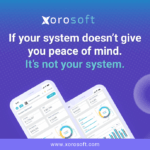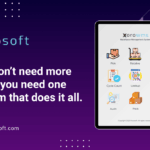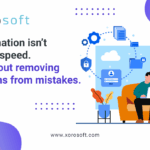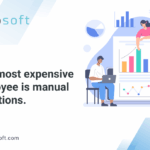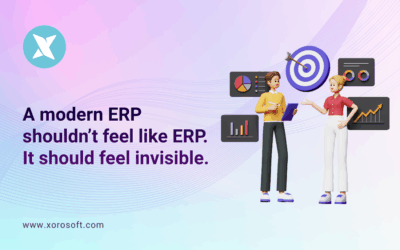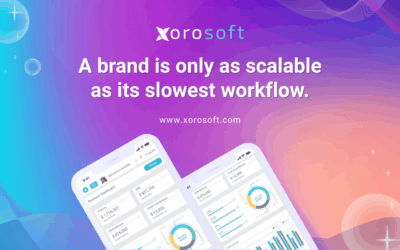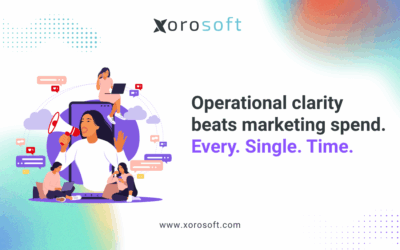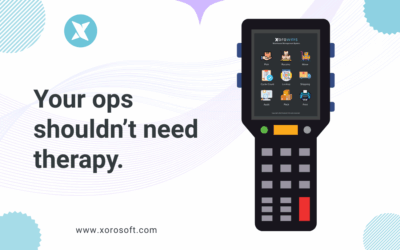
Introduction to ERP Systems
In today’s fast-paced business landscape, companies are constantly seeking ways to streamline their operations, enhance productivity, and gain a competitive edge. One of the most powerful tools in this endeavor is the Enterprise Resource Planning (ERP) system. ERP systems have revolutionized the way businesses manage their critical functions, from inventory control and financial management to customer relationship management and supply chain optimization.
As an experienced writer, I’ve had the privilege of witnessing the evolution of ERP systems over the years. These powerful software solutions have become an essential component of modern business infrastructure, enabling organizations to integrate their various departments and processes into a cohesive, data-driven ecosystem. By providing a centralized platform for managing a wide range of business functions, ERP systems have empowered companies to make informed decisions, improve efficiency, and drive growth.
The Evolution of Service Management
The service management industry has undergone a significant transformation in recent years, driven by the growing demand for more efficient and adaptable solutions. Traditional service management approaches have often been hampered by siloed operations, manual processes, and limited visibility across the organization. However, the advent of advanced ERP systems has paved the way for a new era of service management, one that is marked by increased automation, data-driven decision-making, and seamless integration of various business functions.
As service-based businesses strive to stay ahead of the curve, they have recognized the need for a comprehensive ERP solution that can address their unique challenges and unlock new opportunities for growth. This realization has led to the emergence of innovative ERP platforms that are specifically designed to cater to the specific needs of the service management industry.
Understanding the Benefits of an ERP System
At the heart of the service management revolution lies the transformative power of ERP systems. These integrated software solutions offer a multitude of benefits that can significantly enhance the performance and profitability of service-based businesses. Some of the key advantages of implementing an ERP system include:
- Improved Operational Efficiency: ERP systems streamline business processes, automate repetitive tasks, and provide real-time visibility into key performance indicators, enabling organizations to make data-driven decisions and optimize their operations.
- Enhanced Financial Management: ERP systems integrate financial management modules that automate accounting, invoicing, and reporting, ensuring accurate financial records and improved cash flow management.
- Seamless Inventory Control: ERP systems offer robust inventory management capabilities, allowing businesses to track stock levels, monitor supply chain activities, and optimize inventory levels to minimize waste and maximize profitability.
- Strengthened Customer Relationships: ERP systems often incorporate customer relationship management (CRM) functionalities, enabling businesses to better understand their clients’ needs, improve service delivery, and enhance customer satisfaction.
- Increased Collaboration and Visibility: ERP systems provide a centralized platform for data storage and sharing, fostering cross-departmental collaboration and enhancing visibility across the organization.
XoroERP: A Revolutionary ERP Solution
In the ever-evolving landscape of service management, one ERP system stands out as a true game-changer: XoroERP. Developed by the innovative team at Xorosoft, XoroERP is a comprehensive, cloud-based ERP solution that has been specifically designed to address the unique challenges faced by service-based businesses.
Key Features of XoroERP
XoroERP is a feature-rich ERP system that offers a wide range of functionalities to streamline and optimize service management operations. Some of the key features of XoroERP include:
- Intuitive User Interface: XoroERP boasts a user-friendly and highly intuitive interface, making it easy for employees to navigate and utilize the system’s various modules.
- Customizable Dashboards: XoroERP allows users to customize their dashboards, providing them with real-time insights and data visualizations tailored to their specific roles and responsibilities.
- Robust Inventory Management: XoroERP’s advanced inventory management module enables businesses to track stock levels, monitor supply chain activities, and optimize inventory levels to minimize waste and maximize profitability.
- Comprehensive Accounting and Invoicing: XoroERP’s integrated accounting and invoicing modules automate financial management tasks, ensuring accurate record-keeping, streamlined invoicing, and improved cash flow.
- Seamless CRM Integration: XoroERP seamlessly integrates with customer relationship management (CRM) systems, allowing businesses to better understand their clients’ needs, improve service delivery, and enhance customer satisfaction.
- Powerful Reporting and Analytics: XoroERP’s robust reporting and analytics capabilities provide users with a comprehensive view of their organization’s performance, enabling data-driven decision-making and strategic planning.
- Cloud-based Accessibility: As a cloud-based ERP solution, XoroERP offers the flexibility and convenience of anytime, anywhere access, allowing users to manage their business operations from any device with an internet connection.
Streamlining Operations with XoroERP’s Inventory Management System
One of the standout features of XoroERP is its advanced inventory management system. This module empowers service-based businesses to gain complete control over their supply chain, ensuring efficient inventory management and optimized resource utilization.
With XoroERP’s inventory management system, businesses can track stock levels in real-time, set up automated reorder points, and receive alerts when inventory levels are running low. This proactive approach to inventory management helps organizations avoid stockouts, minimize waste, and optimize their cash flow.
Moreover, the system’s integration with other modules, such as the accounting and purchasing functions, provides a seamless flow of information, enabling businesses to make informed decisions about inventory replenishment, pricing, and resource allocation.
Simplifying Financial Management with XoroERP’s Accounting Module
Another key component of XoroERP is its comprehensive accounting module, which streamlines the financial management processes for service-based businesses. This module automates a wide range of accounting tasks, including invoicing, accounts receivable, accounts payable, and financial reporting.
By integrating the accounting module with other XoroERP functionalities, such as the inventory management and CRM systems, businesses can enjoy a holistic view of their financial performance. This integrated approach allows for accurate and up-to-date financial records, improved cash flow management, and enhanced decision-making capabilities.
The accounting module also offers advanced features like multi-currency support, budgeting tools, and customizable financial statements, ensuring that businesses can tailor the system to their specific needs and regulatory requirements.
Why Businesses Should Choose XoroERP
As service-based businesses navigate the challenges of the modern business landscape, the choice of an ERP system can make all the difference. XoroERP stands out as a compelling choice for several reasons:
- Tailored for Service Management: XoroERP is specifically designed to address the unique needs and pain points of service-based businesses, offering a comprehensive suite of functionalities that cater to the industry’s specific requirements.
- Improved Operational Efficiency: By streamlining business processes, automating repetitive tasks, and providing real-time visibility, XoroERP empowers organizations to improve their operational efficiency and drive productivity.
- Enhanced Financial Management: XoroERP’s robust accounting and invoicing modules ensure accurate financial records, improved cash flow management, and better-informed decision-making.
- Strengthened Customer Relationships: The seamless integration of XoroERP’s CRM functionalities enables businesses to better understand their clients’ needs, improve service delivery, and enhance customer satisfaction.
- Scalable and Adaptable: As a cloud-based solution, XoroERP offers the flexibility to scale up or down as business needs evolve, ensuring that organizations can adapt to changing market conditions and industry trends.
- Exceptional Customer Support: Xorosoft’s dedicated customer support team is committed to ensuring a smooth implementation and ongoing maintenance of the XoroERP system, providing users with the guidance and assistance they need to maximize the system’s benefits.
Implementation and Training for XoroERP
Implementing a new ERP system can be a daunting task, but Xorosoft has streamlined the process to ensure a seamless transition for its clients. The company’s implementation team works closely with businesses to understand their specific requirements, develop a customized deployment plan, and provide comprehensive training to ensure that users can effectively leverage the full capabilities of XoroERP.
The training program encompasses a wide range of topics, from system navigation and module-specific functionalities to advanced reporting and analytics. Xorosoft’s team of experts delivers hands-on training sessions, both in-person and online, to ensure that all employees are equipped with the knowledge and skills necessary to maximize the system’s benefits.
Moreover, Xorosoft’s customer support team remains available to provide ongoing assistance and address any questions or concerns that may arise during the implementation and usage of XoroERP. This commitment to customer success is a testament to Xorosoft’s dedication to empowering its clients and ensuring the long-term success of their businesses.
The Future of Service Management with XoroERP
As the service management industry continues to evolve, the role of ERP systems like XoroERP will become increasingly critical. With its innovative features, seamless integration, and adaptability, XoroERP is poised to redefine the way service-based businesses operate and thrive in the years to come.
By leveraging the power of XoroERP, organizations can look forward to a future where operational efficiency, financial management, and customer relationships are seamlessly integrated, enabling them to make data-driven decisions, optimize resource allocation, and stay ahead of the competition.
Moreover, as technology continues to advance, Xorosoft is committed to staying at the forefront of innovation, ensuring that XoroERP remains a cutting-edge solution that can adapt to the ever-changing needs of the service management industry.
Conclusion: Empowering Businesses with XoroERP’s Revolutionary ERP System
In the dynamic and competitive world of service management, the choice of an ERP system can make all the difference in determining an organization’s success and long-term viability. XoroERP, with its comprehensive suite of features, tailored approach, and commitment to customer success, stands out as a revolutionary solution that can empower businesses to streamline their operations, enhance productivity, and drive sustainable growth.
Book a Demo with Xorosoft to experience the transformative power of XoroERP and unlock new opportunities for your service-based business.
